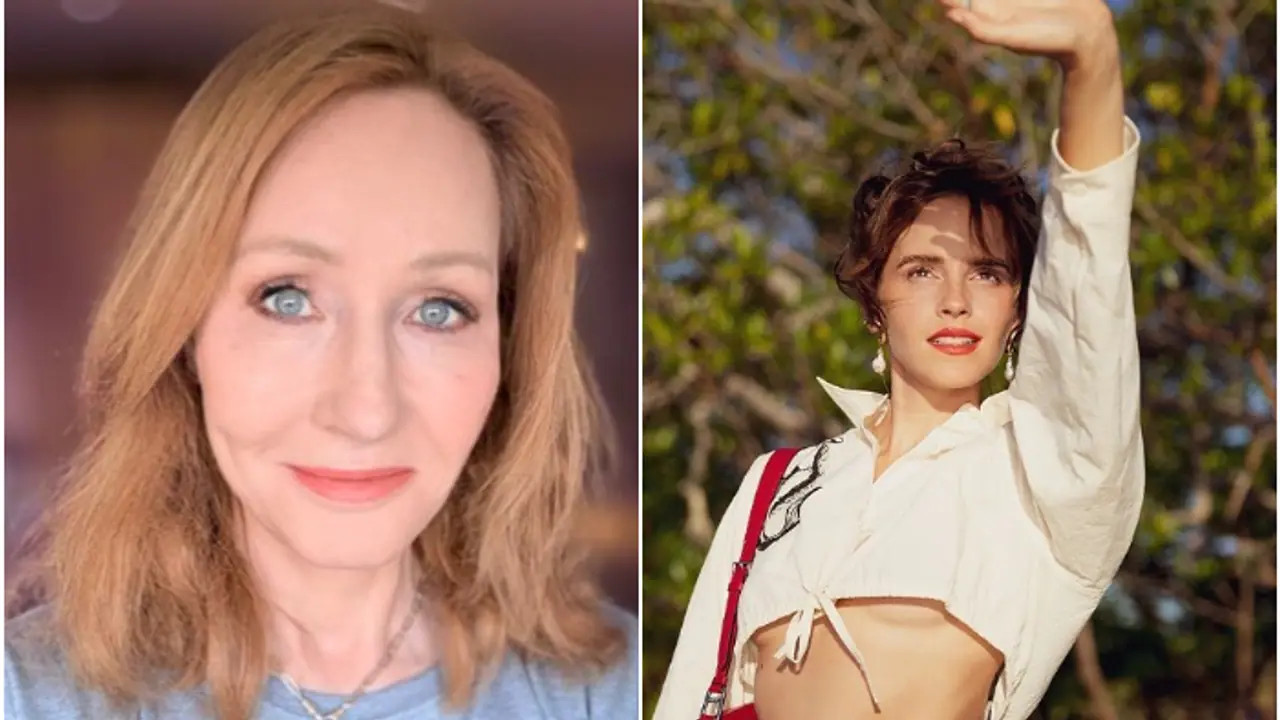Here's why the old Harry Potter cast Daniel Radcliffe, Emma Watson clashed with writer J.K. Rowling
What began as a magical collaboration between a bestselling author and her film stars has, over the past few years, unraveled into a very public and polarizing fallout. The once-unbreakable bond between Harry Potter creator J.K. Rowling and franchise leads Daniel Radcliffe and Emma Watson now lies fractured—shattered by an ongoing cultural battle over gender identity and transgender rights.

The Origin of the Rift
The seeds of discord were planted in 2019 when Rowling publicly supported Maya Forstater, a researcher who lost her job for what were considered transphobic tweets. Rowling’s defense of Forstater marked the beginning of her increasingly vocal stance on sex and gender, positioning herself within the "gender-critical" movement.
In 2020, Rowling drew widespread criticism after mocking the phrase “people who menstruate” in a tweet, implying that the term erased the biological reality of women. “If sex isn’t real, there’s no same-sex attraction,” she wrote in a longer post that followed. “It isn’t hate to speak the truth,” she added—words that many trans activists and allies viewed as deeply hurtful and exclusionary.
The Response From the Harry Potter Stars
The backlash from the public was swift—but perhaps more symbolic was the criticism that came from within the Harry Potter universe itself. Daniel Radcliffe, who played the Boy Who Lived, issued a heartfelt statement through The Trevor Project: “Transgender women are women,” he said plainly, apologizing to fans for the pain caused by Rowling’s comments.
Emma Watson, who portrayed Hermione Granger, echoed the sentiment: “Trans people are who they say they are and deserve to live their lives without being constantly questioned,” she wrote. At the 2022 BAFTAs, she seemed to take a subtle jab at Rowling when she said, “I’m here for all the witches”—a line many interpreted as a quiet yet pointed act of defiance.
Rowling Strikes Back
While Rowling initially refrained from directly addressing the actors, that changed in May 2025. Following the release of the Cass Review—an independent investigation into gender treatments for minors in the UK—Rowling reignited the debate, lambasting celebrities who, in her words, “used their platforms to cheer on the transitioning of minors.”
In a series of posts on X (formerly Twitter), Rowling wrote that Radcliffe and Watson should “save their apologies” for “traumatised detransitioners”—individuals who have reversed gender transitions and now express regret. Her comments followed increasing scrutiny over gender-affirming healthcare practices in the UK and came at a time when she also faced potential legal consequences under Scotland’s new hate crime laws for publicly misgendering trans people.
Undeterred, Rowling declared she would not delete any posts that could breach the new law, vowing to “keep calling a man a man” in what she described as a fight for free speech and biological reality.
A Fractured Legacy
What was once a celebration of creative collaboration has now turned into a generational fault line. Fans of the Harry Potter franchise—many of whom grew up inspired by messages of love, inclusion, and bravery—now find themselves divided.
While Rowling continues to publish and speak publicly on gender-related issues, Radcliffe and Watson have maintained their support for the transgender community, signaling that reconciliation is unlikely any time soon.
As this cultural conversation continues to evolve, the enduring legacy of Harry Potter is now shadowed by a painful schism—one that reflects not just personal differences, but deep societal divides.
